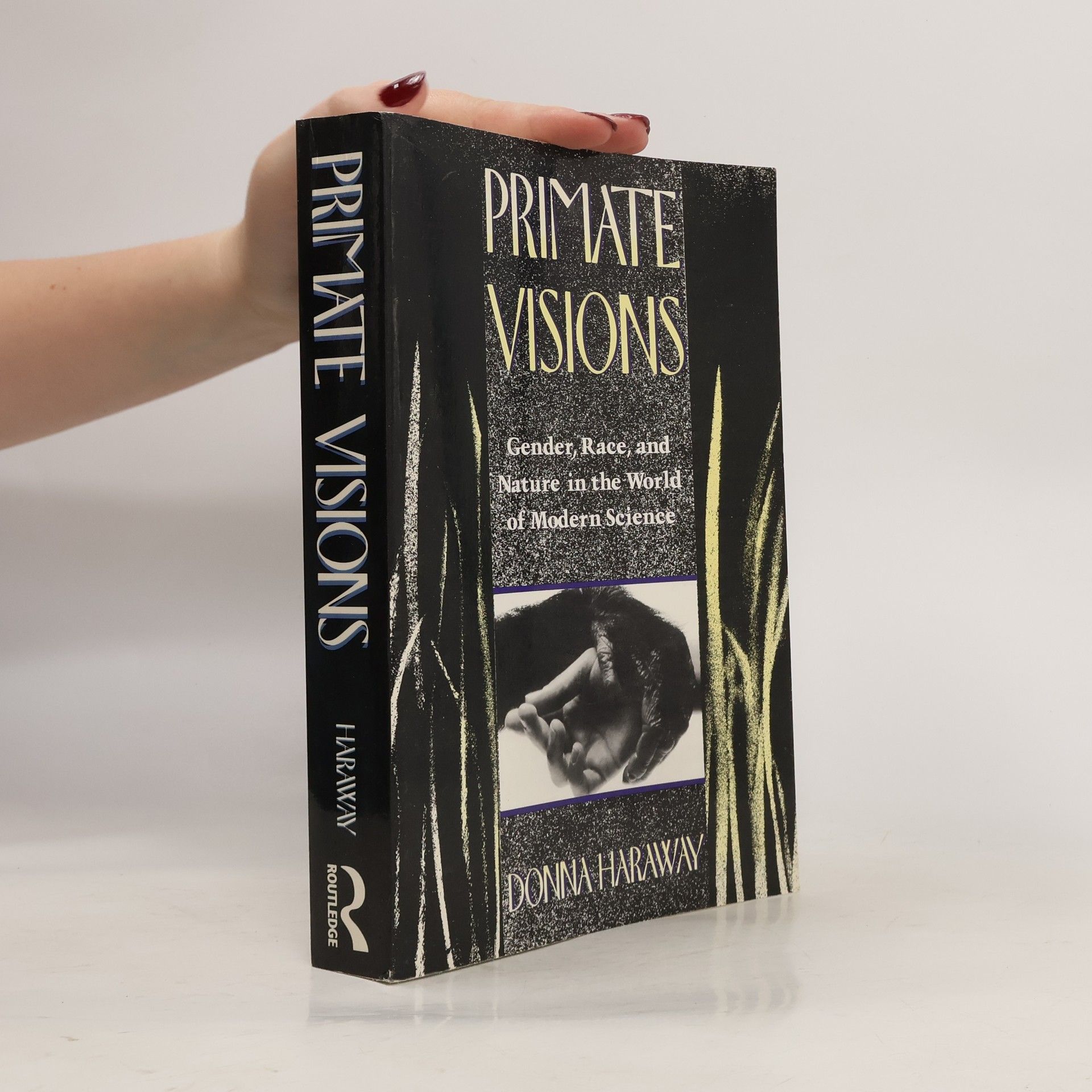Zůstat u nesnází
utváření příbuzenství ve chthulucénu
Donna J. Haraway es autora de varios libros que exploran las intrincadas relaciones entre humanos, tecnología y naturaleza. Su trabajo a menudo profundiza en cómo podemos comprender y conectarnos mejor con el mundo que nos rodea. A través de sus escritos, alienta a los lectores a contemplar el futuro y nuestro lugar en él.






utváření příbuzenství ve chthulucénu
Die Verwandtschaft der Arten im Chthuluzän
Was kommt nach dem Menschen? In Donna Haraways Büchern wimmelt es von Cyborgs, Primaten, Hunden und Tauben. Die Grenze zwischen Mensch und Maschine sowie zwischen Mensch und Tier verschwimmt. In ihrem neuen großen Buch ruft die feministische Theoretikerin das Zeitalter des Chthuluzän aus, das eben nicht - wie im Anthropozän - den Menschen ins Zentrum des Denkens und der Geschichte stellt, sondern das Leben anderer Arten und Kreaturen, seien es Oktopusse, Korallen oder Spinnen. Und nicht nur das: Es sollen neue Beziehungen entstehen, quer zu Vorstellungen biologischer Verwandtschaft. Im Zuge dessen setzt sich Haraway auch mit dem Klimawandel auseinander. Einmal mehr erweist sie sich als eine originelle und radikale Denkerin der Gegenwart.
Donna J. Haraway refigures our current epoch, moving away from the Anthropocene toward the Chthulucene: an epoch in which we stay with the trouble of living and dying on a damaged earth while living with and understanding the nonhuman in complex ways conducive to building more livable futures.
Electrifying and provocative, Donna Haraway's "Cyborg Manifesto," published thirty years ago, remains highly relevant today as it challenges complex divisions of human and machine, gender, class, race, ethnicity, sexuality, and location. The "Companion Species Manifesto" further interrogates the human-nonhuman divide, making it essential in our era of environmental crisis and polarization. Together, these manifestos reveal the continuity of Haraway's thought, engaging readers in a conversation with her long-term friend Cary Wolfe. Through a dialogue on the history and significance of the manifestos, they explore themes such as biopolitics, feminism, Marxism, human-nonhuman relationships, making kin, literary tropes, material semiotics, and secular Catholicism. The discussion culminates in insights into Haraway's "Chthulucene Manifesto," which contrasts the bleak narratives of the Anthropocene and Capitalocene. Committed to fostering diverse and robust earthly flourishing, this work aims to reignite essential conversations about biologies, technologies, histories, and potential futures, both within and beyond academic circles.
Mit der Veröffentlichung des Gefährten-Manifests von Donna Haraway wird ein Text auf Deutsch zugänglich gemacht, der längst zum Kanon feministischer Literatur gehört. Haraways Stärke liegt darin, genre- und diskursübergreifend wichtige persönliche, philosophische und politische Fragen zu verhandeln und dabei leidenschaftlich die Freude am Schreiben und Lesen zu zelebrieren. Durch persönliche Beobachtung und philosophische Analyse, historische Neuerzählung und politische Hinterfragung entwirft das Manifest in erzählerischer Leichtigkeit und Eleganz ein Panorama des Zusammenlebens und Zusammenwerdens der Gefährtenspezies Hund und Mensch, das neue Perspektiven auf Beziehungen und Geschichte/n in lebbareren, zukünftigen Welten ermöglicht.
This deeply personal yet intellectually groundbreaking work develops the idea of companion species and deftly explores philosophical, cultural, and biological aspects of animal-human encounters.
Acclaimed theorist and social scientist Donna Jeanne Haraway uses the work of pioneering developmental biologists Ross G. Harrison, Joseph Needham, and Paul Weiss as a springboard for a discussion about a shift in developmental biology from a vitalism-mechanism framework to organicism. The book deftly interweaves Thomas Kuhn's concept of paradigm change into this wide-ranging analysis, emphasizing the role of model, analogy, and metaphor in the paradigm and arguing that any truly useful theoretical system in biology must have a central metaphor.
Offering a comprehensive selection of Donna Haraway's writings, this volume showcases her insightful observations on nature, science, and society. It serves as an excellent introduction to her thought-provoking ideas, reflecting her unique perspective and contributions to contemporary discourse.
The Companion Species Manifesto is about the implosion of nature and culture in the joint lives of dogs and people, who are bonded in "significant otherness." In all their historical complexity, Donna Haraway tells us, dogs matter. They are not just surrogates for theory, she says; they are not here just to think with. Neither are they just an alibi for other themes; dogs are fleshly material-semiotic presences in the body of technoscience. They are here to live with. Partners in the crime of human evolution, they are in the garden from the get-go, wily as Coyote. This pamphlet is Haraway's answer to her own Cyborg Manifesto , where the slogan for living on the edge of global war has to be not just "cyborgs for earthly survival" but also, in a more doggish idiom, "shut up and train."